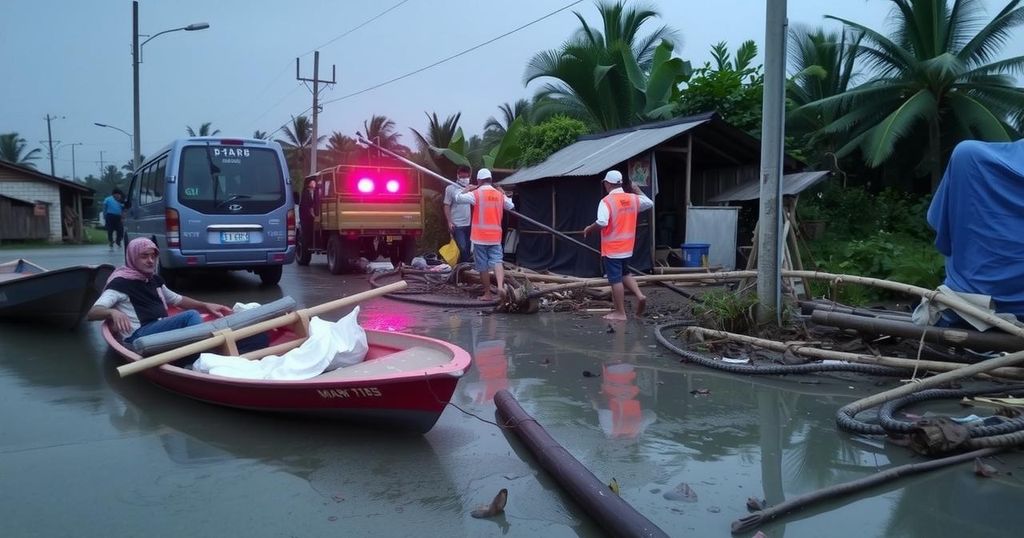Mayotte has imposed a curfew as it grapples with the aftermath of Tropical Cyclone Chido, which has resulted in at least 22 confirmed deaths and extensive destruction. Hundreds are feared dead, with urgent aid efforts underway to provide food and water to the affected areas. Local officials express concern over potential health crises due to the dire conditions necessitated by the cyclone’s impact.
In the wake of Tropical Cyclone Chido, which struck Mayotte over the weekend with ferocious winds of up to 124 mph, authorities have implemented a curfew from 10 p.m. to 4 a.m. to manage the ongoing crisis. Initial reports confirm at least 22 fatalities, but the toll could be significantly higher, with hundreds feared dead due to the destruction of entire neighborhoods across the French territory. Rescue operations are hindered as officials warn that a large portion of Mayotte’s residents are undocumented immigrants living in poorly constructed shelters.
Mayotte is a French archipelago situated off the eastern coast of Africa, classified as France’s poorest territory. It is home to approximately 320,000 residents, about a third of whom are undocumented immigrants. The area typically experiences protection from severe storms due to its proximity to Madagascar; however, Cyclone Chido’s trajectory led it to directly impact Mayotte this time. The storm has raised concerns about the potential for a health crisis, as aid efforts are urgently needed to provide food and water to the affected populations.
The situation in Mayotte remains critical following the devastation caused by Tropical Cyclone Chido, with the government struggling to coordinate aid efforts while managing public safety through a curfew. The call for assistance has grown in urgency as medical aid and recovery resources are rallied to mitigate the potential health crises arising from the storm’s aftermath. The tragic event highlights the vulnerabilities faced by many in this economically challenged region.
Original Source: www.nytimes.com






